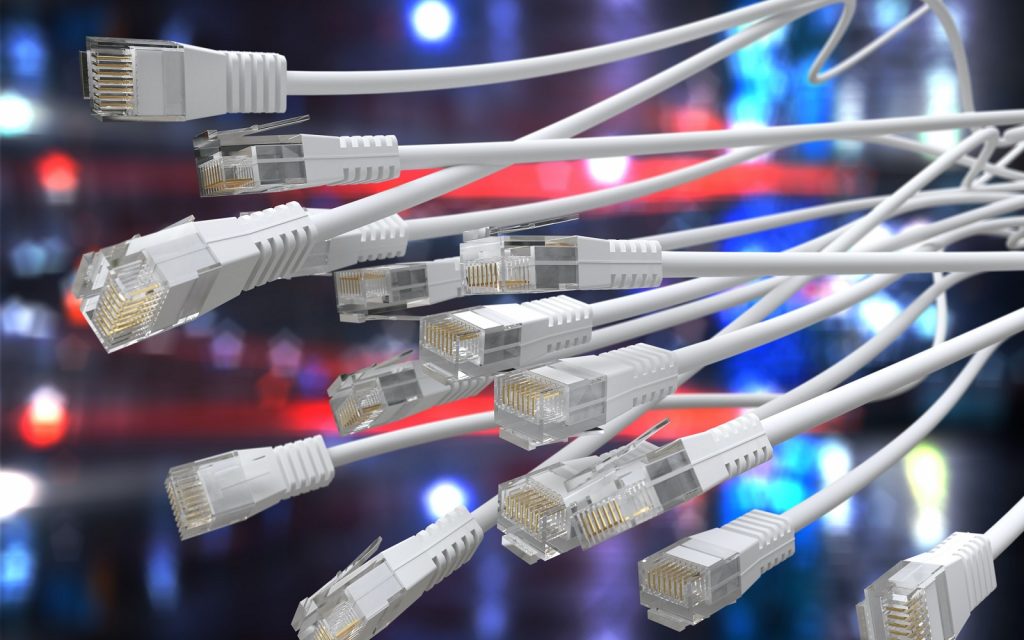We’ll let you into a little secret: buying the right networking equipment and setting up your own wired and wireless network for the purposes of doing business things isn’t all that difficult. You just need to know a few things before embarking on your networking adventures, and you’ll be fine.
Okay, that’s a lie; we’re only saying this because we’ve been doing networking things for nigh-on three decades now, and it only seems easy to us. When starting out, there are a lot of things you need to know that nobody will tell you.
Like the things we’re about to tell you in this article. If you’re a small business owner (or soon-to-be-owner) and you’re looking into kitting your premises out with a network, but your knowledge is a little sketchy, reading this is a great starting point on your Journey To Networking Knowledge.
What you will need
Here are the basic components of any network:
- A connection to the internet – via Fibre, LTE, 5G, etc.
- A Wi-Fi router – to get connectivity to your wireless devices over the air
- A network switch – to intelligently route cabled data where it needs to go
- A Firewall – to keep all of the internet nasties out of your network and devices
- Network cables – to connect wired devices with your networking equipment
- Patch panel(s) – to organise your network cables and keep your network/business premises neat
Plan out your network
If possible, figure out how many devices will need to be connected and how they will connect (wired/wirelessly) before starting your network design. Knowing this will help you plan for the future and affect the number and type of networking devices you purchase.
Get the internet
First things first: you need a connection to the internet. Without it, your network will connect your devices to each other but nothing else.
In order of best to worst, here are your options:
- Fibre
- 5G
- LTE
- Rain
Our advice: If you can get fibre, get the fastest package your budget will allow. You will never regret having super fast internet, and fibre is reliable, fast, and quite affordable (you can get 50/50 internet for R700 these days).
If you must have absolute reliability, go for a business package, as these guarantee a certain level of service and response times to incidents in exchange for costing more than home connections. In contrast, home fibre packages tend to be “best-effort” (i.e. you get what you get when it comes to speed, and ISP response times to incidents are “when we get to it”).
If fibre isn’t available, look into 5G or LTE connections. These are also quite affordable and their speeds are generally good, but performance can be affected by the weather, your proximity to the nearest cell tower, and the number of people connected to your nearest cell tower at the same time.
Don’t get Rain for business use. Their advertising is great, but the performance of their connections varies greatly depending on where you live and how good your location’s line-of-sight is to their towers. If you really must have Rain for your networking needs, test them out thoroughly before committing.
Connect the internet to your Wi-Fi router
A Wi-Fi router is the next piece of the networking puzzle. You will generally get one from your internet service provider on signing up, but these tend to skimp on features and be cheaply made and are thus not as good as a brand-name router from ASUS/Netgear/TP-Link, etc. “Good” here means “reliable, fast enough, with wide enough Wi-Fi coverage to reach all of your devices”. Be sure that the Wi-Fi router you choose supports the fastest Wi-Fi protocol, ‘Wi-Fi 6’ or 802.11ax, and you’ll be fine.
Use Wi-Fi extenders to defeat dead spots
Wi-Fi extenders are devices that plug into your network and provide additional Wi-Fi coverage in case there are places inside your premises where the Wi-Fi signal is weak. Even the best Wi-Fi routers won’t necessarily reach every nook and cranny in your business premises, and Wi-Fi extenders, like this one from Ubiquiti, solve that problem.
Got wires? Get a switch
You’ll need a switch if you have devices with LAN ports and there’s no option to convert them to Wi-Fi (or if you need the full speed of Gigabit Ethernet). A switch is a piece of network hardware that all of your Ethernet cables plug into; it then intelligently routes data packets from their source to their destination over those cables. Most (if not all) switches these days are Gigabit switches, meaning they support throughput (data transfer speeds) of 1000Mbps (Megabits per second) – or 125MB/s (Megabytes per second).
Patch panels keep things neat
If you want to wire up your premises with network ports on the walls, we highly recommend getting yourself a patch panel. These unpowered devices are where your network cables are terminated, allowing for easy labelling of which port on the patch panel goes to which network port and thus, which device. From there, you connect each port on the patch panel to a port on your switch with short Ethernet cables, and you’re done. This helps to keep your cabling neat and easy to understand at a glance.
It can also save you money in the long run. When there’s a network problem that you can’t figure out yourself, you’ll need to call in a professional who usually charges by the hour. If they don’t need to spend the first three hours tracing cables, they’re likely to get you back online quicker.
To Firewall or not to Firewall
A firewall is a physical device that monitors your network for viruses, malware, spyware, ransomware, and other cyber-nasties. These are typically more advanced than the software firewalls built into Windows/MacOS and the ones that run on routers, but they are also more expensive and unnecessary if you only have a few staff. Get one if you’re planning on expanding your staff complement in a big way or if you’re super paranoid about cyberattacks.
Otherwise, relying on Windows, antivirus software, and your router for protection is fine. Just be sure that they are all configured properly and set up correctly, and you and your staff use common sense when interacting with suspicious emails/websites/files.
Networking Knowledge +1
These are the very basics you’ll need to know before embarking on any mission to build a network for small business use. But now that you know more about networking, you can make better decisions.
As always, we recommend talking to the professionals about anything you’re concerned about. But with this networking knowledge under your belt, that consultation will be a meeting of the minds and not just a pro telling a n00b what to do.




